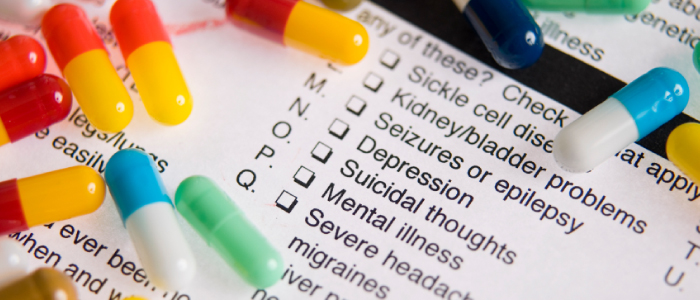
1. A person has a serious underlying problem with inflammation may have elevated cholesterol.
2. Unresolved inflammation has long been associated with cardiovascular (heart) disease.
These two pieces of information describe how cholesterol can be associated with cardiovascular disease (CVD). However, it is a leap of logic to conclude that the cholesterol is the cause of the disease. While almost anything is possible, the elevated cholesterol may actually be a sort of gauge, or meter that tells us when there is something wrong. That “something” may be causing the cholesterol to rise.
Using a drug to lower cholesterol levels is akin to covering the numbers on a bathroom scale with a picture of the dial registering 120 pounds. Regardless of how heavy you may be, using that modified bathroom scale will report that you weigh a healthy 120 pounds.
A drug that lowers cholesterol does not resolve the underlying cause of the elevated cholesterol or heart disease any more than a false dial face reports your weight at 120 pounds when you use the “doctored” scale.
To make matters worse, the drug – usually a statin – is not harmless. There are numerous side effects associated with these drugs, and some of them can even be fatal. Nevertheless, you might point out, these drugs are the only proven method for lowering cholesterol. The risks are worth taking if we can avoid serious disease.
A large study (called JUPITER, Justification for the Use of Statins in Primary Prevention) failed to demonstrate that the statins do anything positive or protective at all.
A follow-up study to JUPITER reported that, “…there was a very low case-fatality rate of myocardial infarction, far from the expected number …” The risk of death from heart disease, with or without statins, was the same. The actual conclusion of the final study was, “The results of the trial do not support the use of statin treatment for primary prevention of cardiovascular diseases …”
However, that conclusion has not stopped the pushers of statins who continue to promote the presumed benefits and even suggest that everyone take statin drugs to prevent serious cardiovascular disease – even when there’s scant evidence to support that action.
Abundant evidence shows that individuals with no previous CVD have numerous options in managing heart risk before automatically being switched to cholesterol-lowering drugs.
If a person is able to reduce or eliminate underlying inflammatory disease, cholesterol levels would automatically be in “normal” ranges. Can a person do this without drugs? Of course, but it takes some action on our part – the same action that is underlying all approaches to a truly healthy life; eating well, drinking clean water, exercise, avoiding sugar and artificial sweeteners, and limiting drug use (including alcohol).
Supplements might be necessary for good health because it is increasingly difficult to eat nutritious food. For people with concerns about cardiovascular health, there are supplements that attack underlying inflammation, which results in lowered cholesterol. Cholesterol levels move toward normal because the body is operating in a healthy manner, not because some hormone-blocking drug (a statin) is artificially changing levels.
Cholesterol lowering, cardiovascular diseases, and the rosuvastatin-JUPITER controversy: a critical reappraisal. de Lorgeril M, Salen P, Abramson J, Dodin S, Hamazaki T, Kostucki W, Okuyama H, Pavy B, Rabaeus M. Arch Intern Med. 2010 Jun 28;170(12):1032-6
Please read everything you can about Statins. I am extremely passionate about this topic and I’m standing up and yelling about it.
Here are links to every article or blog post I’ve made regarding the subject:
- Your Health: Cholesterol
- Your Health: Inflammation, Statins & Cardio Vascular Disease
- Your Health: Heart Health Without Drugs
- Your Health: Cholesterol CAUSES Death?
- Side Effects of Cholesterol Drugs
- Heart Health: Policosanol & Niacin vs. Drugs
- Statin Drugs Can Kill You
- Statin Drugs Can Make You Dumb
- That’s The Drugs Talking…
- My cholesterol numbers are high!
- My TOP THREE Worst Drugs
